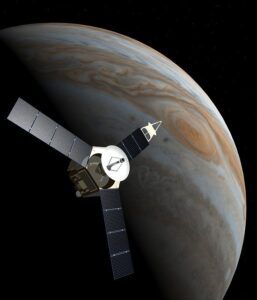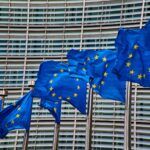By reinforcing synergies with other space technologies and working with all the Member States, while creating a favourable ecosystem, the impact of the space sector on economic growth in Europe will largely expand and create more jobs, according to European GNSS Agency (GSA) Acting Executive Director Pascal Claudel.
The 2nd Earth Observation Summit has been held online on 2-3 June. This was the occasion to underline how the different components of the EU Space programme are creating value by building applications together.
“The space sector is of strategic importance to the Union. In the last decade space related sectors grew twice as fast as global economy grows. Europe has historically been on the forefront investing greatly in space infrastructure such as Copernicus, Galileo and EGNOS. We are proud of these successful investments which are now the foundations and enablers for new applications and businesses. Indeed, space has a multiplier effect in terms of investment and the EU is well placed to capitalize on its strong space industry since more than 10% of the overall EU economy depends on space related services. Relevant technologies generate opportunities for job creation based on new skills, skills of the future.” stated Ms Blaženka Divjak, Croatian Minister of Science and Education during her opening of the Summit.
Underlining this need for the economic development with innovative approaches in mind, Timo Pesonen, Director General of the European Commission’s Directorate-General for Defence Industry and Space (DG DEFIS), confirmed “New products, new satellite missions and new technology, especially digital, like Artificial Intelligence, Quantum technology, and high-performance computing are essential, to keep our industry competitive.”
Space for a twin transition to a Green and Digital Europe
Timo Pesonen also cited the European Green Deal as a prime example of a political answer to global challenges. “An ambitious space programme, as the Commission proposes, will contribute to Europe’s digital and green transitions, to strengthening our resilience and strategic autonomy, and in turn our potential to innovate for the future,” he said.
In its operational role of ensuring that European companies are getting the best out of the EU satellite navigation systems, GSA confirmed that significant new markets are coming, such as autonomous vehicles, cars and drones, or applications for smart mobility and smart cities. They will play a crucial role also for the European Green Deal.: “To win parts of these markets, we need to have a performant EU entrepreneurship ecosystem and the involvement of all EU Member States. We have to gather our forces and our competencies.” stated the GSA acting Executive Director.
Indeed, EU Member States do not need to have specific competences in space technologies or a strong space sector to use space data and develop applications. The development of the Galileo Green Lane app, managed by the GSA had been led by traditional start-ups and SMEs. This app makes it possible to ease the transit of critical goods at borders within EU. So, every Member State has the capacity to be an actor on these markets and to develop its own entrepreneurship.







Leave a Reply